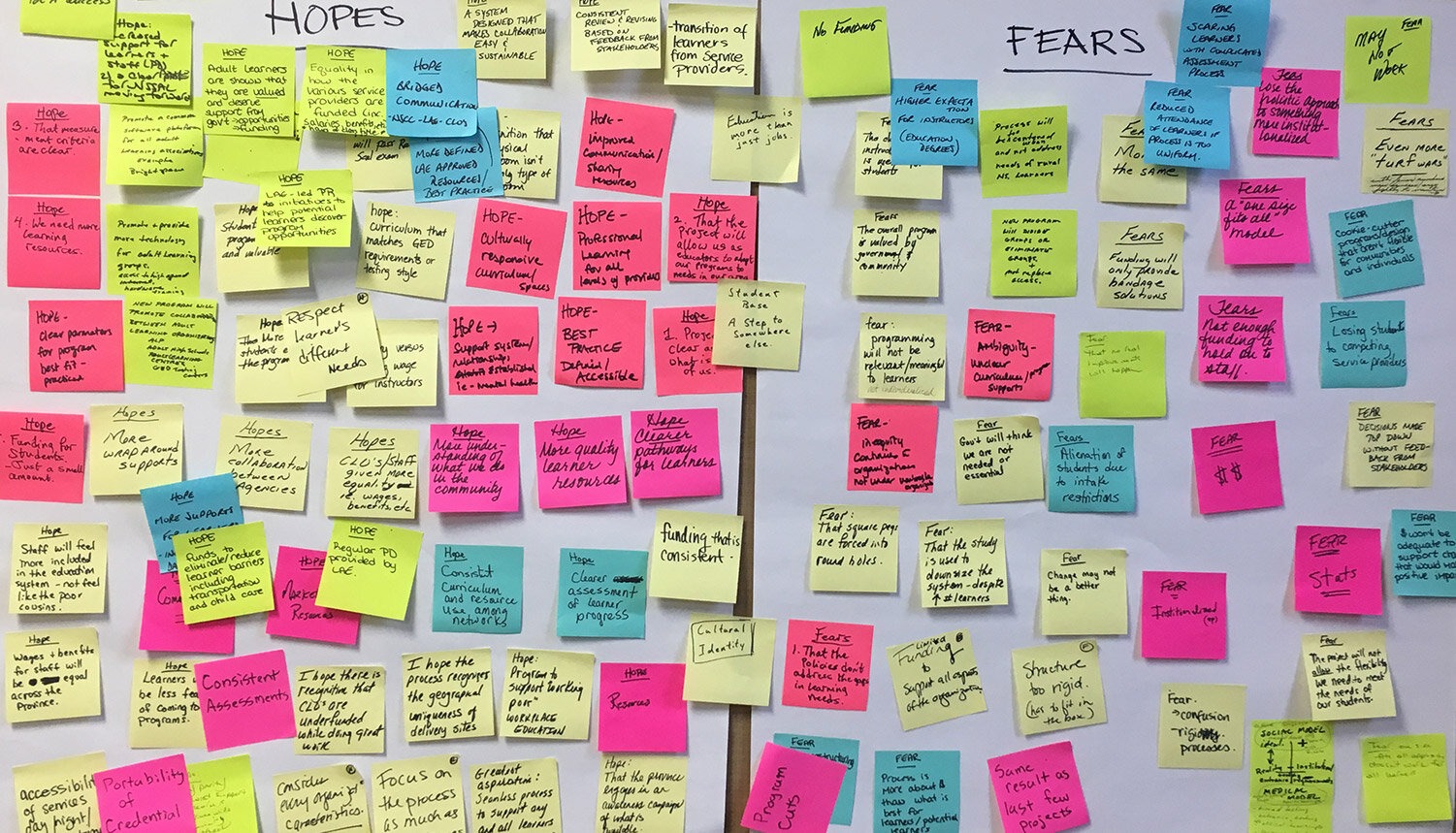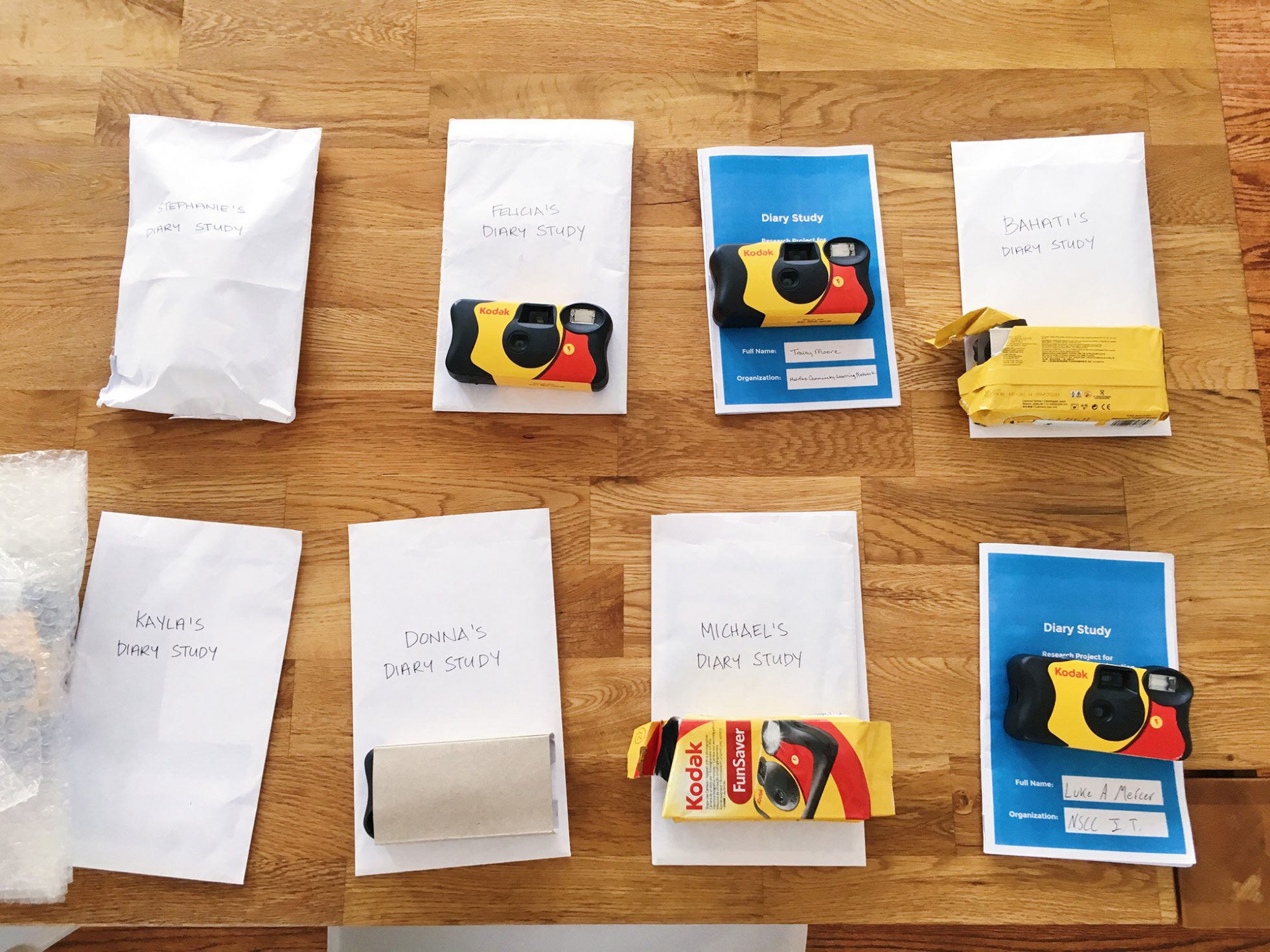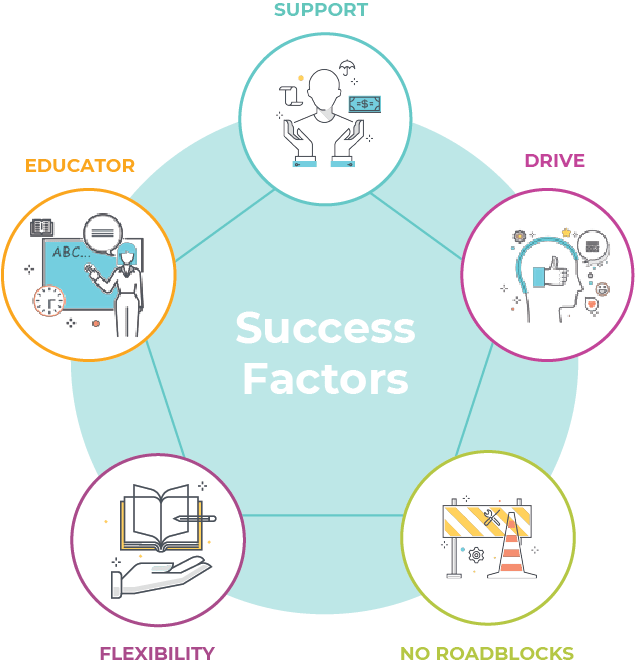About
The Canada West Foundation reported in 2018 that as many as 40% of Canadians have poor literacy skills.
Literacy in this context does not only encompass reading and writing, but also numeracy, critical thinking, and the ability to learn efficiently. As low-skill jobs become automated at an increasing rate, adult education in Canada has become more important than ever, and education providers are looking for new, innovative ways to support adult learning.
The project is gaining momentum and we’ve begun introducing changes. We refer to our personas often! Working with Outwitly was a wonderful experience.
– Director, Department of Adult Education
The Challenge
Many adult learners are socio-economically disadvantaged, living in rural (hard to access) areas, are culturally under-represented, have full or part-time work, and care for children in the home. The existing adult education model was simply not meeting the complex needs of these individuals. Instructors and education service providers were frustrated with the lack of consistency in the province’s adult education model. Resources were not being distributed equally, and the curriculum varied too much from organization to organization.
The Goal
Understand current learner pathways and needs, including challenges faced by education service providers, and seek new opportunities for innovation in the current system to inform a clear and consistent program model.
The Process
To reimagine and develop new and exciting adult education programs, we needed a deeper understanding of current practices. By applying a human-centered design and research approach, we were able to engage with learners, government stakeholders, and service providers to better understand their needs, wants, frustrations, and motivations.
To accomplish this, we undertook ethnographic user research with over 100 learners, instructors, administrators, and government stakeholders. This included:
-
5 days of contextual observations in the classroom;
-
A discovery workshop with government stakeholders and partners;
-
A two-week diary study with 18 adult learners;
-
A discovery and validation workshop with service providers;
-
40+ in-depth interviews with instructors, administrators, tutors, and current and potential adult learners representing 150 adult education organizations in the region; and,
-
Two days of co-design workshops with service providers and stakeholders to envision a new adult learning program model.
The Research
40+
In-Depth Interviews
with instructors, administrators, and tutors
5
Days of Observation
with learners and instructors in the classroom
18
Adult Learners
completed a two-week diary study
The diary study was a particularly fun and illuminating exercise. We sent learners a Kodak disposable camera, a journal with questions and prompts (the diary!), and instructions, all by mail. Participants were asked to take photos of their work spaces, tell us what they liked/disliked about their classwork, and how they felt in general. At the end of the two weeks, learners mailed their cameras and diaries back to Outwitly using pre-paid postage. This exercise allowed us to understand the challenges learners face around child care, mental health, transportation, and other personal struggles that impact attendance and their ability to do classwork.
We identified 5 Key Learner Success Factors that can be applied in the development of adult learning programs and government resources and support. Adult learners are most successful in achieving their goals when they have:
-
Access to Support – This includes a supportive and safe learning environment, supportive home and family life, access to wrap-around services, and financial support (such as access to financial aid for transportation and childcare).
-
Internal Drive – Internal success factors include a student’s own willingness to learn, a positive attitude, and self-motivation.
-
Competent Educator – A competent, patient, respectful, and caring educator was identified as a success factor.
-
Flexible Learning – Adults were more successful in achieving their learning goals when programs were delivered in a flexible way (accommodating different learning disabilities/abilities, schedules, and ways of learning).
-
Fewer Roadblocks – Adults with fewer learning barriers and higher attendance were also more likely to succeed.
Using ideas and data captured through our research activities, we developed workshop reports, a set of adult learner personas, and a final Insights Report including our Top 10 insights and recommendations for reimagining adult education curriculum and program models. We also delivered a Program Model Framework with a set of North Star Principles and guidelines.
The Impact
Using design-thinking models and frameworks we were able to synthesize these findings into a 6-Step Action Plan for adult education moving forward. We determined that more awareness, advertising, and communication were needed to increase enrollment, that learner intake techniques needed to be more consistent across the province, and that clearer pathways, milestones, and certificates aligned to learner goals were needed for current adult learners who wanted to progress from program to program.
Based on the findings in our Insights Report, our client was able to seek a 26% boost in provincial government funding to help service providers improve the adult learning experience.


